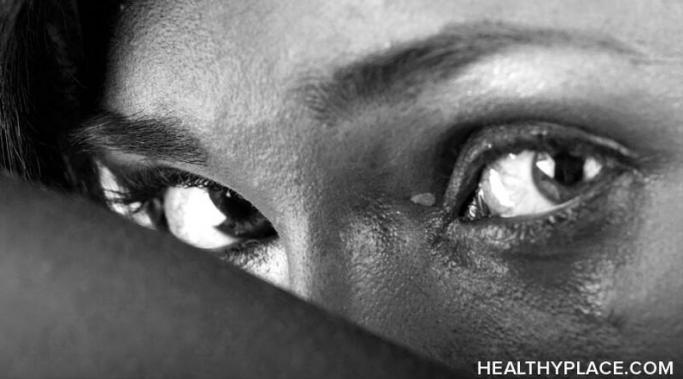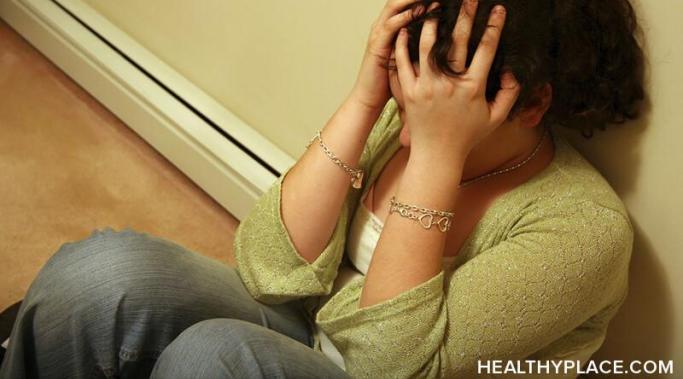Blogs
Self-harm and suicide are somewhat shrouded in mystery. Many consider them a teenage fad, a call for attention, or, worse, an act of selfishness. On the other hand, research suggests that self-injury and suicide often go hand in hand with trauma, which is a serious matter. And yet, the phenomenon is not fully understood. Is it because we choose to suffer in silence? (Note: This post contains a trigger warning.)
I started doing monthly check-ins a couple of years ago when I first recognized that I had a self-esteem issue. Poor self-esteem often keeps us stuck in the past with regrets or pinned to the future with hopes and dreams. My monthly check-ins keep me grounded in the present and give me a realistic view of my accomplishments and productivity level, which keeps my self-esteem healthy. Before I started doing monthly check-ins, I lived with a never-ending to-do list which made me feel like a failure and less than enough.
What is it really like to live with suicidal ideation? Suicide is still heavily stigmatized, with accusations of selfishness being one of the most prominent pieces of stigma used against it. Would knowing about suicidal ideation help reduce the stigma that's so quickly thrown at those who struggle with thoughts of dying by suicide? I believe understanding its impact can shed light beyond the misinformation that fuels suicide's stigma. (Note: This post contains a trigger warning.)
Anxiety disorders and suicidality are connected, but when I think about how anxiety is perceived by society, I think about what I've seen on tv and in movies. I've seen so many shows where anxiety was portrayed with someone sweating a lot on a first date or being unable to speak when asked to talk in public. Some forms of anxiety are even used for comedy, like in "Parks and Recreation" where Leslie's mom meets a former love interest whose anxiety led to a comedy of errors after Leslie brings him to a party. There isn't anything wrong with these portrayals, but it is striking to me that none of the imagery associated with an anxiety disorder implies suicidality. (Note: This post contains a trigger warning.)
My name is Jennifer Lear, and I am the co-author of the "Coping with Depression" blog here at HealthyPlace. I am thrilled to be joining this community and am excited (and nervous) to be sharing my experiences with you. I started exhibiting symptoms of obsessive-compulsive disorder (OCD) at age six. By 18, I was riddled with so many ticks and compulsions that I could barely function, and I finally took it upon myself to seek help from my family doctor. I was diagnosed with chronic OCD and depression and placed on medication. There was no offer of counseling, no reassurance that I was not alone, and I was left feeling more depressed, more ashamed, and more terrified to publicly acknowledge how I was feeling.
Birthdays are supposed to be exciting. Unfortunately, for many of us, birthdays trigger depression, anxiety, and stress in general. Given that I happen to be one of those folks who suffer from birthday blues, I can tell you that just like clinical depression, birthday depression too is real and not a choice.
At a time when the outside world feels chaotic, I've found myself turning inward as much as possible by using visualization to feel better. It's one of my favorite ways to block out circumstances and events that aren't within my control by visualizing things that make me feel happy.
As someone who has not only personally experienced addiction recovery but has also worked as an addiction professional, I know all about the idolization of the sacred sobriety date. However, if you've followed this blog for long, you've probably noticed that I've never given my exact sobriety date or the precise weeks, months, or days I've been free from my addiction. This is because I really don't honor the sacred sobriety date like so many others do in addiction recovery. I have no ill will towards those who do participate in this ritual, but I've learned over time that it just isn't my thing.
Self-injury, by its very nature, seems inherently connected to suicidal thoughts and behaviors. Yet while suicide necessarily involves causing yourself harm, there is a subtle but important difference between self-harm vs. self-destruction.
Although I am now less afraid to drive, in the past, my schizoaffective anxiety has made me afraid to do it. But it’s getting better, largely due to the fact that I got a Subaru. My mom was due for a new Subaru, so she gave me her old one. It’s a sports utility vehicle (SUV) with four-wheel drive and all sorts of safety features, and I’ve been driving more since it’s been my car.










I read this book many years ago, just as I was entering the turmoil of remembering, questioning and doubting myself all the way (as I'd been covertly taught over a lifetime). I happened to mention to my two sisters one day, "This is so strange but I've been diagnosed with PTSD." Both my sisters surprised me by responding, "Me too."
THEN I happened upon an old book manuscript that my now deceased father had written (not published), wherein the protagonist was obviously based upon himself and he rapes his "fiancee," who had my unusual name. Yes, truly.
Then I made myself look at the peculiar memory I always had where he violently threatened me but somehow I had never been able to recall what came before or after the episode. I had to admit that was a bit strange.
The pressures and powers to forget sexual abuse are great, both in family and society. In fact, I've come to the sad conclusion that the vast majority of survivors never really deal with their childhood wounds (a neglect for which there are always repercussions).
To critique an encouragement of people trusting their intuition in such matters is really getting the prescription dangerously wrong.
Thanks!